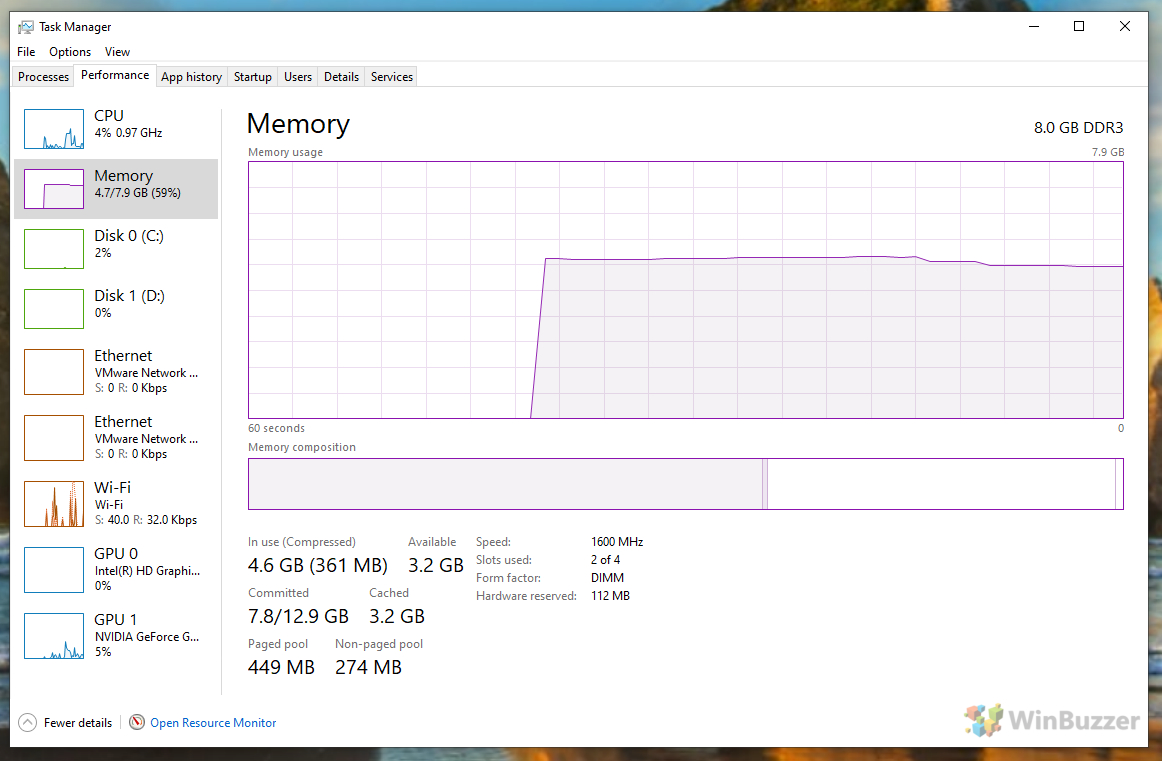

- #MEMORY CLEAN WINDOWS HOW TO#
- #MEMORY CLEAN WINDOWS INSTALL#
- #MEMORY CLEAN WINDOWS UPDATE#
- #MEMORY CLEAN WINDOWS UPGRADE#
In that case, open Task Manager using Ctrl + Shift + Esc. While you may have closed the program, it could be running in the background. Check on the taskbar and system tray for such programs and close it. If you need to keep running applications because you may need them again and keep forgetting about it, it will be a problem in a couple of hours. 2] Close unwanted programs and processes from the Task Manager So if there is a case where memory is still occupied even after the program exits, then restart. When the computer restarts, it removes everything from memory and starts fresh. Most of the problems are resolved if you choose to restart. You will need admin permission to resolve the problem.
#MEMORY CLEAN WINDOWS HOW TO#
How to clear Memory Cache in Windows 11/10įollow these suggestions to clear the memory cache in Windows 11/10 to free up RAM on the computer. This post will guide you on how you can clear Memory Cache in Windows 11/10.

While closing apps may help, but at times, the memory may remain occupied, and that’s why it may be necessary for some to clear out old memory and free the RAM. The more apps you have, the more memory will be occupied. Try to catch it with top or similar tools, and if you find it, post a more specific question or a bug report.Unless you are running a high-end configuration, running out of memory is not a big deal. If your system is really slowing down a "rogue" or leaking application is the most common reason. (1) the only exception here is the apt-cache and the old kernels - in normal condition, on desktop, they are almost always just lost space. For example, clearing the nautilus thumbnails means they are to be rebuilt again - slowing down file browsing.
#MEMORY CLEAN WINDOWS INSTALL#
You can also install it using a PPA, look here in WebUpd8 (it's still ok for 14.04).Ĭonsider anyway that if you clear a cache, the data will need to be reloaded/rebuilt, so the effect is, most of the time, to slow things down(1). See also How safe is Ubuntu tweak's Janitor?. Gnome-shell is another well-known memory leaker.įor the file part, you can install Ubuntu Tweak and use the janitor module: Browsers are classical offenders there I need to close mine (and restart) every couple of weeks. Linux manages its RAM automatically, no cleaning needed if there is some process misbehaving and using too much RAM, you just stop it. "Memory" and "temporary files" are different things. To install it open your terminal and type sudo add-apt-repository ppa:tualatrix/ppa Until Ubuntu 14.04 you can use Ubuntu Tweak: It has computer-janitor built in and many other more or less useful utilities. Sudo apt-get install computer-janitor-gtk Till Ubuntu 12.04 you can use computer-janitor: But if you don't know what you are doing be careful. Type your password (no characters will be displayed) and wait till executed.
#MEMORY CLEAN WINDOWS UPDATE#
To install it open your terminal and type sudo apt-get update I recommend BleachBit: It's a good file-cleaner and (also in root-mode) you can hardly mess up your system. You don't have to think about it on Linux systems. The Linux or Ubuntu equivalent is called (u)readahead.

So if you don't know what you are doing, don't mess around with them! Most of them are used to run your system and programs like you are used to it.

There is a reason why they are called system files. Such memory-leaking programs are often browsers and browser plug-ins. If a process uses "too much" RAM stop and restart it. On Linux systems you don't need RAM cleaners. RAM, temp-files, system-files and prefetch are different things. If not, you maybe have to face a bigger hardware problem in the future.
#MEMORY CLEAN WINDOWS UPGRADE#
Without more information it is hard to say, but if you are lucky a RAM upgrade may help. Since you also face the same problem on windows I guess this may be a hardware issue. It's a bit strange that your system gets sightly slower after 8 hours.


 0 kommentar(er)
0 kommentar(er)
